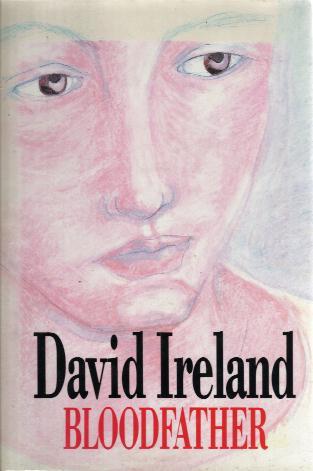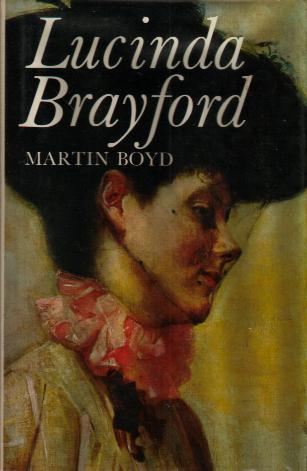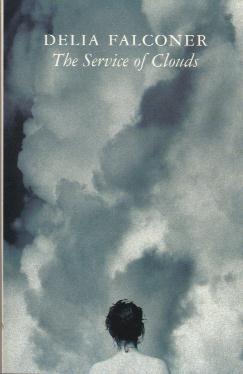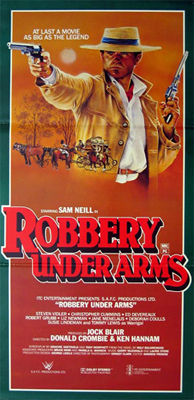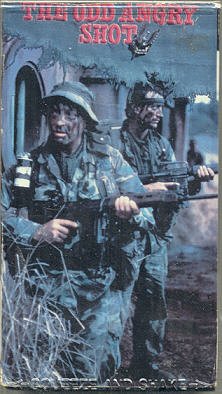It's definitely awards season in Australia, and one that I always seem to miss is the Queensland Premier's Literary Awards. This is probably because the shortlists were announced this year on August 25 and the winners released on September 12, neatly falling within my latest holiday period.
Anyway, the shortlisted works, and winners, were:
Emerging Queensland Author - Manuscript Award
Michele Di Bartolo for The Sicilian Kitchen
Karen Foxlee for The Anatomy of Wings [WINNER]
Simon Groth for Here Today
Hamish Sewell for A Quota of Heartbeats
Unpublished Indigenous Writer - The David Unaipon Award
Gayle Kennedy for Me, Antman and Fleabag [WINNER]
Jeanine Anne Leane for Dark Secrets: After Dreaming AD 1887 -1961
Lorraine McGee-Sippel for Hey Mum, What's a Half Caste?
Barrina South and Aunty June Barker for Life on the Brewarrina Mission
Non-Fiction - Dymocks Literacy Foundation Award
Neil Chenoweth for Packers Lunch (Allen & Unwin) [WINNER]
Dr Brenda Niall for Judy Cassab: a portrait (Allen & Unwin)
Jacob Rosenberg for East of Time (Brandl & Schlesinger)
Craig Sherborne for Hoi Polloi (Black Inc)
History Book Award
Richard Bosworth for Mussolini's Italy (Allen Lane /Penguin Press)
Dr Peter Edwards for Arthur Tange: The Last of the Mandarins (Allen & Unwin) [WINNER]
Dr Regina Ganter for Mixed Relations: Asian/Aboriginal Contact in North Australia (UWA Press)
Prof Patricia Jalland for Changing Ways of Death in Twentieth Century Australia (UNSW Press)
Children's Book Award
Chardi Christian for Selkie and the Fisherman (Hachette Livre Australia)
Martine Murray for The Slightly Bruised Glory of Cedar B. Hartley (who can't help flying high and falling in deep) (Allen & Unwin) [WINNER]
Narelle Oliver for Home (Omnibus Books)
Tohby Riddle for Irving the Magician (Penguin Group)
Carole Wilkinson for Garden of the Purple Dragon (Black Dog Books)
Young Adult Book Award
Catherine Bateson for His Name in Fire (University of Queensland Press)
Ursula Dubosarsky for The Red Shoe (Allen & Unwin) [WINNER]
Julie Lawrinson for Bye, Beautiful (Penguin Group)
Kierin Meehan for In the Monkey Forest (Penguin Group)
Scott Westerfeld for Peeps (Penguin Group)
Science Writer - Department of State Development, Trade and Innovation Award
Brad Collis for Food Crops (Various print media)
Dr Carole Hungerford for Good Health in the 21st Century (Scribe) [WINNER]
Murray Sayle for Overloading Emoh Ruo: The Rise and Rise of Hydrocarbon Civilisation (Griffith University & ABC Books)
Poetry Collection - Arts Queensland Judith Wright Calanthe Award
John Kinsella for The New Arcadia (Fremantle Arts Centre Press) [WINNER]
Jennifer Maiden for Friendly Fire (Giramondo)
Les Murray for The Biplane Houses (Black Inc)
Jaya Savige for Latecomers (University of Queensland Press)
Australian Short Story Collection - Arts Queensland Steele Rudd Award
Tony Birch for Shadow Boxing (Scribe)
Craig Cormick for A Funny thing Happened at 27 000 Feet . . . (Ginninderra Press) [WINNER]
Michael De Valle for Take a Breath & Hold It (Ginninderra Press)
Tara June Winch for Swallow the Air (University of Queensland Press)
Literary or Media Work Advancing Public Debate - The Harry Williams Award
Matthew Carney for The Ice Age (Four Corners ABC TV)
David Corlett for Following them Home: The Fate of the Returned Asylum Seekers (Black Inc)
Graeme Crowley and Paul Wilson for Who Killed Leanne? (Zeus Publications)
Gideon Haigh for Asbestos House (Scribe) [WINNER]
Murray Sayle for Overloading Emoh Ruo: The Rise and Rise of Hydrocarbon Civilisation (Griffith University & ABC Books)
Film Script - Pacific Film and Television Commission Award
Tony Ayres for The Home Song Stories (Big and Little Films Pty Ltd)
Reg Cribb for Last Train to Freo (Taylor Media Pty Ltd)
Rolf de Heer for Ten Canoes (Vertigo Productions) [WINNER]
Ana Kokkinos and Andrew Bovell for Book of Revelation (Wildheart Films)
Keith Thompson for Clubland (RB Films)
Ann Turner for Irresistible (Cascade Films Pty Ltd)
Drama Script (Stage) Award
Van Badham for The Gabriels (Floodtide Theatre Company)
Patrick Carr for Batavia (Map Theatre Co.)
Patricia Cornelius for Boy Overboard (Australian Theatre for Young People)
Noelle Janaczewska for Mrs Petrov's Shoe (Theatre @ Risk) [WINNER]
Stephen Sewell for The 3 Furies: Scenes from the Life of Frances Bacon (Performing Lines)
Television Script - QUT Creative Industries Award
Richard Dennison for Pioneers of Love (Orana Films)
Sarah Lambert for The Alice - Episode 14 (Southern Star)
Sean Nash for All Saints - Episode 358 "Drawing the Line" (Network 7)
Fiona Seres for Love My Way - Episode 15 (Southern Star)
Katherine Thomson for Unfolding Florence (Becker Entertainment) [WINNER]
Fiction Book Award
Brian Castro for The Garden Book (Giramondo) [WINNER]
Robert Drewe for Grace (Penguin Group)
Kate Grenville for The Secret River (The Text Publishing Company)
Roger McDonald for The Ballad of Desmond Kale (Random House)
Gail Jones for Dreams of Speaking (Random House)
